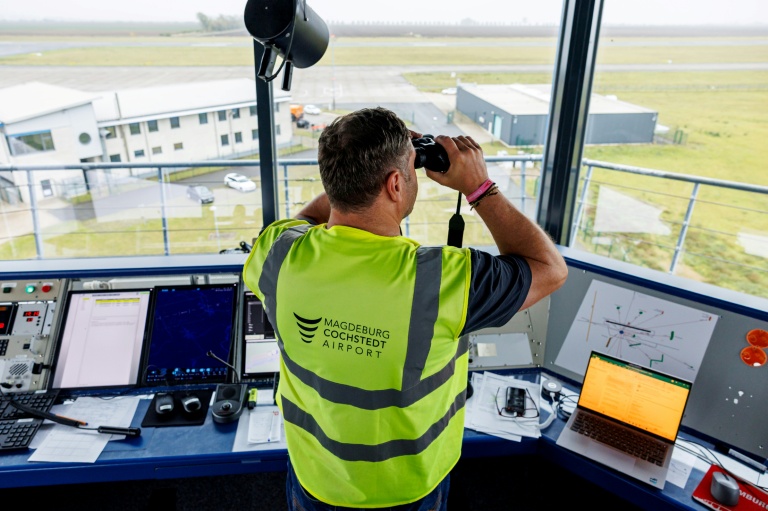
UPDATE: Europe is grappling with an urgent surge in drone activity over sensitive infrastructure, raising alarms among EU leaders who suspect Russian involvement. Just this month, multiple incidents, including two drone sightings over Munich Airport, have forced closures and heightened security concerns across the continent.
Officials are racing against time to mitigate these disruptions, which are seen as part of a broader hybrid warfare strategy from Russia, now in its third year since the invasion of Ukraine. Ursula von der Leyen, President of the European Commission, emphasized the seriousness of the situation, stating that these incidents represent a “coherent and escalating campaign” against Europe.
Earlier this month, drone sightings not only shuttered Munich Airport but also created disturbances in cities like Copenhagen and Oslo. “Our suspicion is that Russia is behind most of these drone flights,” declared Chancellor Friedrich Merz, highlighting the growing threat to European airspace and national security.
The situation escalated when several drones were reported over the Mourmelon-le-Grand military base in northeastern France, leading to urgent military responses. A French military source described this as an “exceptional” occurrence, with the drones not attributed to French military operations. In the wake of these incidents, authorities are exploring all possible measures to counteract the drone menace.
The challenges of responding to these threats are significant. Detecting and disabling drones through jamming or interception poses complex technical risks. “At this stage, it’s just to annoy us; it’s part of the Russians’ displays of hostility,” a French security source revealed, emphasizing the difficulty in proving Moscow’s direct involvement.
European nations are also facing legal constraints when it comes to counter-drone tactics. In France, only government agencies are permitted to neutralize drones, while Germany is working to resolve legal ambiguities that prevent police from shooting down potentially threatening drones. “We are no longer completely in peacetime,” warned Admiral Nicolas Vaujour, chief of staff of the French Navy, reflecting on the pressing need for effective defense measures.
As the situation develops, authorities are calling for a coordinated European response to safeguard critical infrastructure, including airports and military installations. The need for immediate action has never been more critical as the potential for further escalation looms.
The public remains on edge as these incidents unfold, with many questioning the effectiveness of current security measures. With the stakes rising, European leaders must act decisively to protect their skies against this growing drone threat.





